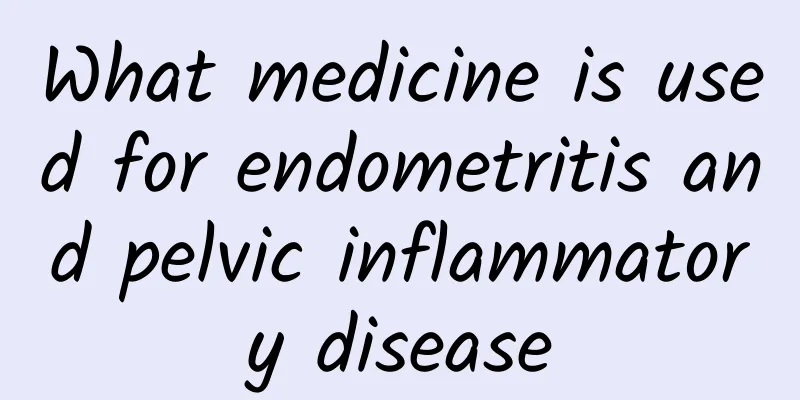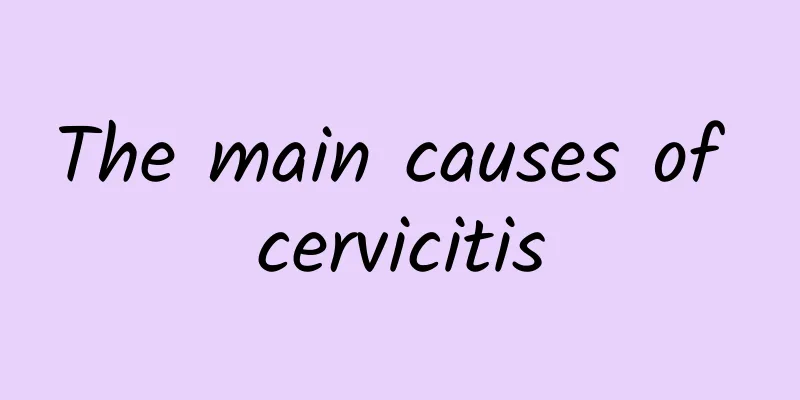What medicine is used for endometritis and pelvic inflammatory disease

|
Endometritis and pelvic inflammatory disease can be treated with antibiotics, hormone drugs and auxiliary Chinese medicine, but the specific medication needs to be determined according to the type of infection, the severity of the disease and individual differences. Do not take medication on your own. You should see a professional doctor as soon as possible for diagnosis and treatment. 1. Antibiotic treatment The main causes of endometritis and pelvic inflammatory disease are usually bacterial infections. Common pathogens include gonococci, chlamydia, Escherichia coli, etc. Depending on the type of infection, the doctor may prescribe the following antibiotics: Broad-spectrum antibiotics: such as amoxicillin and clavulanate potassium tablets, can be used to fight a variety of bacterial infections. Cephalosporin antibiotics: such as ceftriaxone sodium, are suitable for patients with severe infections or suspected Gram-negative infections. Tetracycline antibiotics: such as doxycycline, are effective against chlamydia infections. Usually, two or more antibiotics are needed for combined treatment to improve efficacy, while maintaining a sufficient medication cycle of at least 7-14 days. 2 Hormone drugs and auxiliary drugs When inflammation is severe or accompanied by significant pain symptoms, the doctor may prescribe hormones or other auxiliary drugs to help relieve discomfort and inflammatory response: Hormonal medications, such as ibuprofen, reduce pelvic tissue inflammation and pain. Probiotics such as Bifidobacterium triple live bacteria tablets help restore the balance of vaginal flora and prevent recurrence of infection. Traditional Chinese medicine conditioning drugs, such as Jinkui Shenqi Pills, Chinese patent medicine Danshenone Capsules, etc., can help improve chronic inflammation or regulate irregular menstruation and other problems, and should be used under the doctor's advice. 3. Assisted daily care In addition to medication, practicing good personal hygiene habits can also help reduce the risk of relapse: Pay attention to the cleanliness of the perineum on a daily basis and avoid using too many irritating sanitary products. Avoid sexual intercourse during menstruation to prevent further aggravation of the infection. Eat more foods rich in vitamin C, such as oranges and green peppers, to enhance immunity and speed up recovery. If the condition is serious and not treated in time, such as with high fever, severe abdominal pain, and abnormal vaginal discharge, hospitalization or surgery to remove the abscess may be required, which should be taken seriously. If drug treatment is ineffective, the doctor may recommend minimally invasive surgery to clean up pelvic fluid or abscesses. Since endometritis and pelvic inflammatory disease may lead to serious consequences such as infertility, it is important to seek medical treatment promptly when the symptoms are first discovered, complete the course of treatment under the guidance of a doctor, and do not stop taking the medication or miss doses at will. |
>>: Can I use cupping during my menstrual period?
Recommend
Uterine bleeding treatment costs
Functional uterine bleeding, also known as DUB, i...
What are the causes of recurrent vaginitis?
Vaginitis is a common gynecological disease, whic...
A brief discussion on the examination methods of cervical erosion
There is a clear boundary between the eroded surf...
Will mild cervical erosion heal on its own?
Will mild cervical erosion heal on its own? Cervi...
What are the auxiliary diagnostic methods for vulvar leukoplakia?
Vulvar leukoplakia is a very common female gyneco...
Diagnosis of vulvar leukoplakia should select multiple points of different lesion sites for sampling
Experts say that leukoplakia of the vulva is more...
How to treat pelvic effusion
Pelvic effusion does not necessarily require surg...
What medicine should I take to treat cervical warts?
In daily life, cervical warts are a common diseas...
What is the cause of functional uterine bleeding in adolescence?
What does functional uterine bleeding mean in ado...
What medicine can cure cervical erosion quickly and effectively?
What medicine can cure cervical erosion quickly a...
How to relieve menstrual cramps
How to relieve menstrual cramps? When women have ...
Is ovarian cyst a serious disease?
Ovarian cysts are a common gynecological disease ...
Analysis of the symptoms of hyperplastic vulvar leukoplakia
Hyperplastic vulvar leukoplakia is a type of vulv...
How to use medicine for female cervical erosion 5 ways to improve the efficacy of cervical erosion
For women with cervical erosion, there are curren...
Female syncope and shock may be symptoms of ectopic pregnancy
The symptoms of ectopic pregnancy are very danger...









